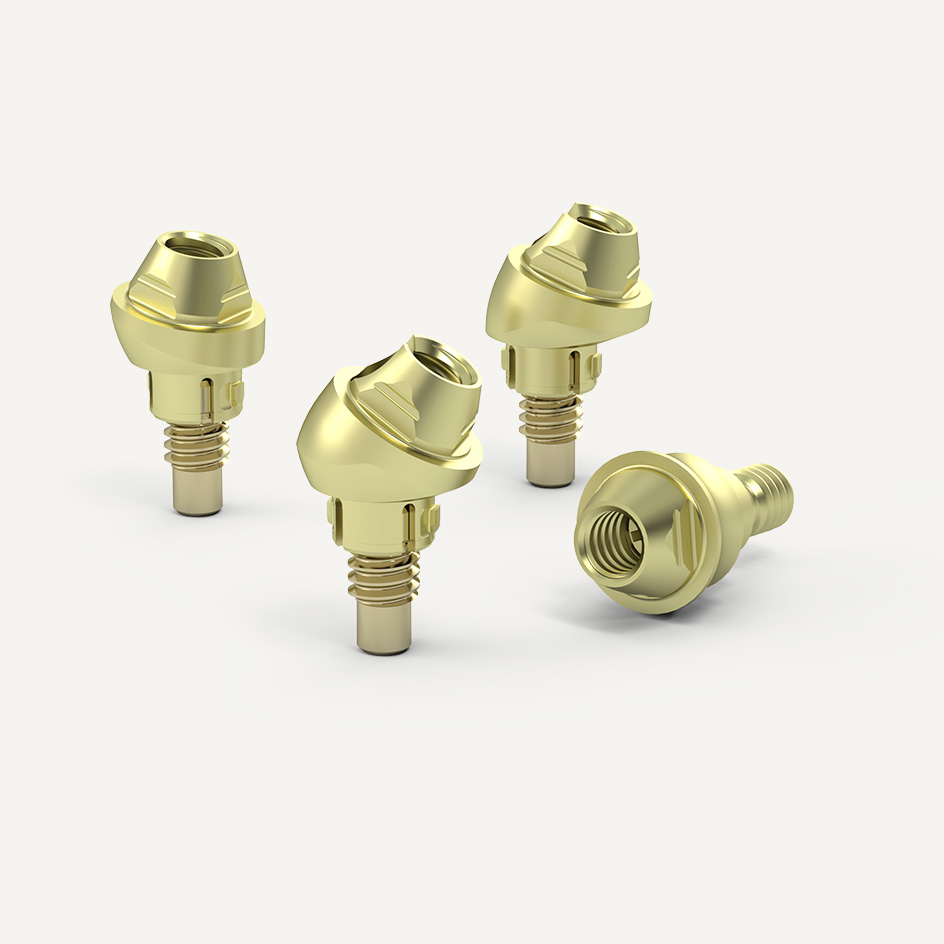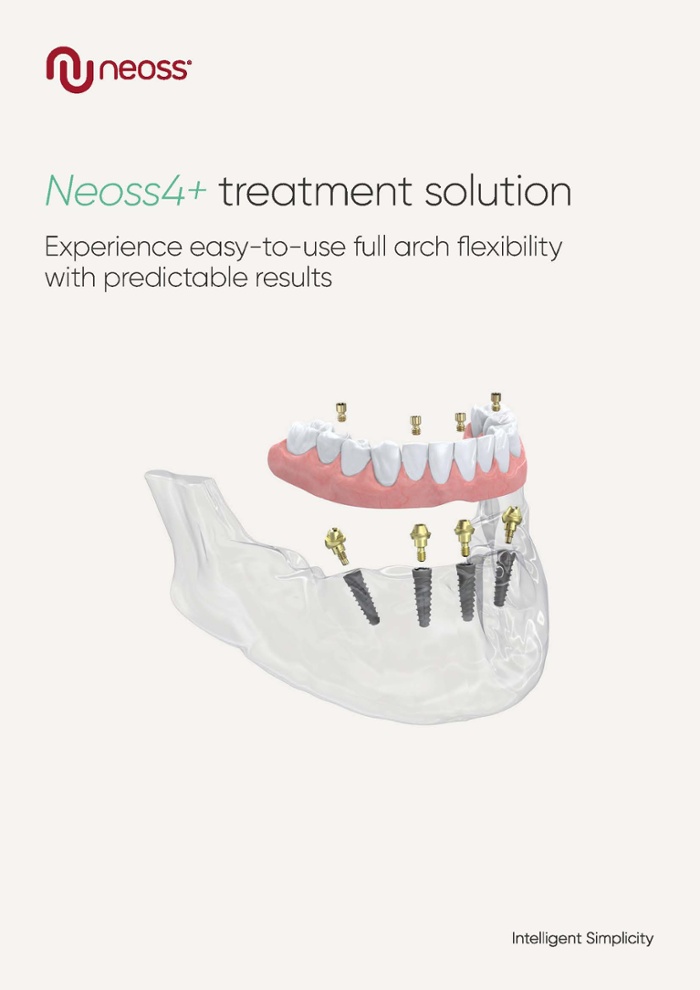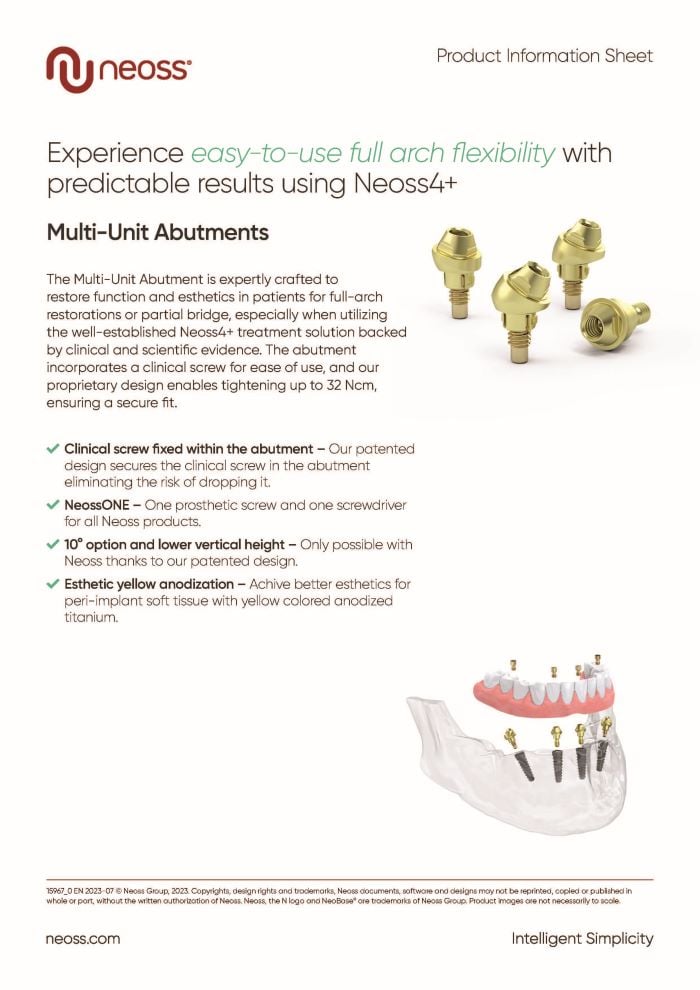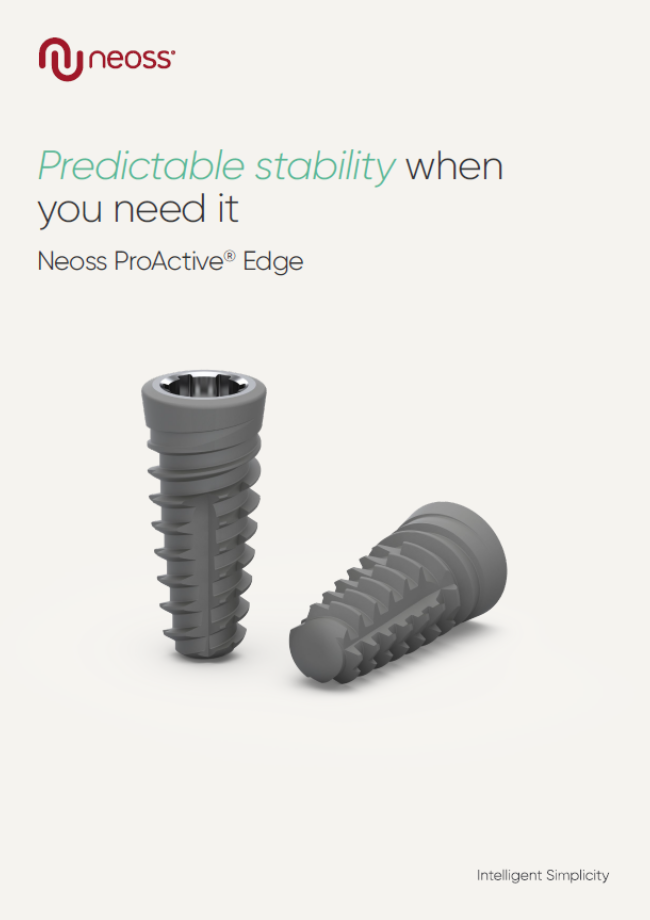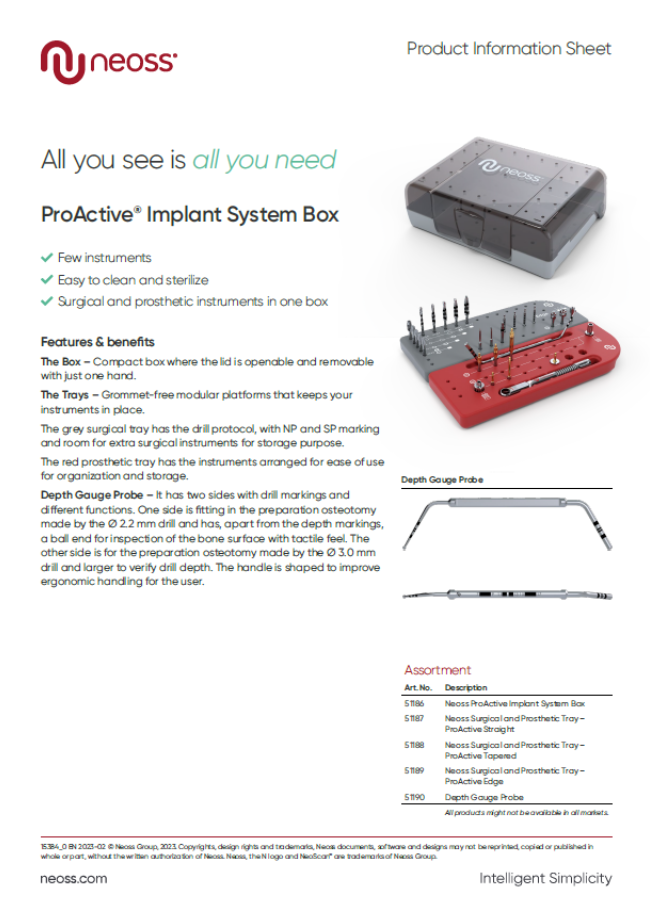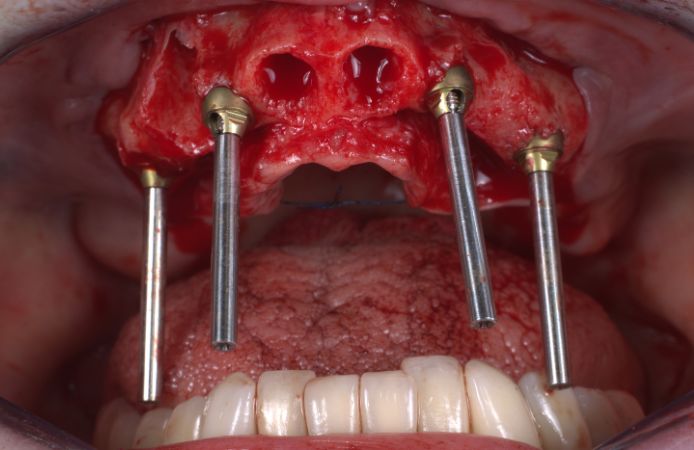
Immediate implant placement in the maxilla and full-arch rehabilitation
Dr. Dr. Dominic Hützen, MD, DDS
Implantologist
Mülheim an der Ruhr, Germany
Case facts
Patient:
A 78-year-old female patient in generally good health.
Clinical problem:
The patient presents with a failing tooth-supported telescopic bridge in the maxilla. The remaining maxillary teeth cannot be saved and require extraction.
Clinical solution:
The extraction of three maxillary teeth, followed by the immediate placement of four implants. Two of the posterior implants are placed at an angle for optimal support. Multi-Unit Abutments are installed immediately after implant placement. A provisional screw-retained bridge is placed on the same day as the surgery, with the final prosthesis scheduled for future placement.
Treatment plan:
- Extraction of three maxillary teeth.
- Immediate placement of four implants.
- Installation of four Multi-Unit Abutments.
- Use of four Multi-Unit Impression Coping Closed Tray.
- Application of four Multi-Unit Healing Caps.
- Installation of provisional screw-retained bridge.
Products:
4 Neoss ProActive Edge implants
4 Multi-Unit Abutment 30° 3.0 mm
4 Multi-Unit Impression Coping Closed Tray 6 mm
4 Multi-Unit Healing Cap
Conclusion:
The Neoss4+ treatment solution for the upper jaw involves the placement of four implants with Multi-Unit Abutments. A provisional screw-retained prosthesis is fitted on the same day as the surgery, with plans for the final prosthesis to be placed at a later date.
Step by step
Step by step
-
Figure 1.
Initial clinical situation with existing telescopic bridge in place in the upper jaw.
-
Figure 2.
Initial clinical situation after removal of failing telescopic bridge.
-
Figure 3.
Extraction of failing teeth in anterior maxilla.
-
Figure 4.
Occlusal view after extraction. A full thickness flap was raised from molar area to molar area and the bone crest was levelled.
-
Figure 5.
Four Neoss ProActive Edge implants were immediately installed. The anterior implants were 4.0 x 15 mm.
-
Figure 6.
The two posterior implants (4.5 x 15 mm) were tilted to maximize the distance between the implants, to avoid the sinus, to maximize the contact with available bone, and to increase stability.
-
Figure 7.
Occlusal view of the placed implants
-
Figure 8.
Neoss Multi-Unit Abutment 30° 3.0 mm. The angulated abutments are delivered with a plastic holder to facilitate installation.
-
Figure 9.
Placement of four Neoss Multi-Unit Abutments 30° 3.0 mm. The abutments were torqued to 32 Ncm.
-
Figure 10.
The angulated Neoss Multi-Unit Abutments re-aligned the prosthesis interfaces to achieve a passive fit of the prosthesis.
-
Figure 11.
Neoss Multi-Unit Impression Copings Closed Tray were placed on abutment level.
-
Figure 12.
Soft tissue sutured around impression copings for impression taking using closed impression technique.
-
Figure 13.
Neoss Multi-Unit Healing Caps were placed on the Multi-Unit abutments.
-
Figure 14.
CBCT image showing implant positions and re-angulation with Multi-Unit Abutments to achieve parallel prosthetic platforms.
-
Figure 15.
Sheffield testing on model to check passive fit of the provisional framework on implants.
-
Figure 16.
A metal framework covered with composite was manufactured in the lab. Try-in of screw retained provisional restoration on model.
-
Figure 17.
The provisional restoration was delivered the day after surgery. Facial view.
-
Figure 18.
Provisional restoration, occlusal view.
-
Figure 19.
Facial view of patient when removing stitches 7 days after surgery.
“Multi-Unit Abutments expand possibilities once more while the fundamental core idea of the system remains unchanged - simplicity together with dental solutions at the highest level.”



















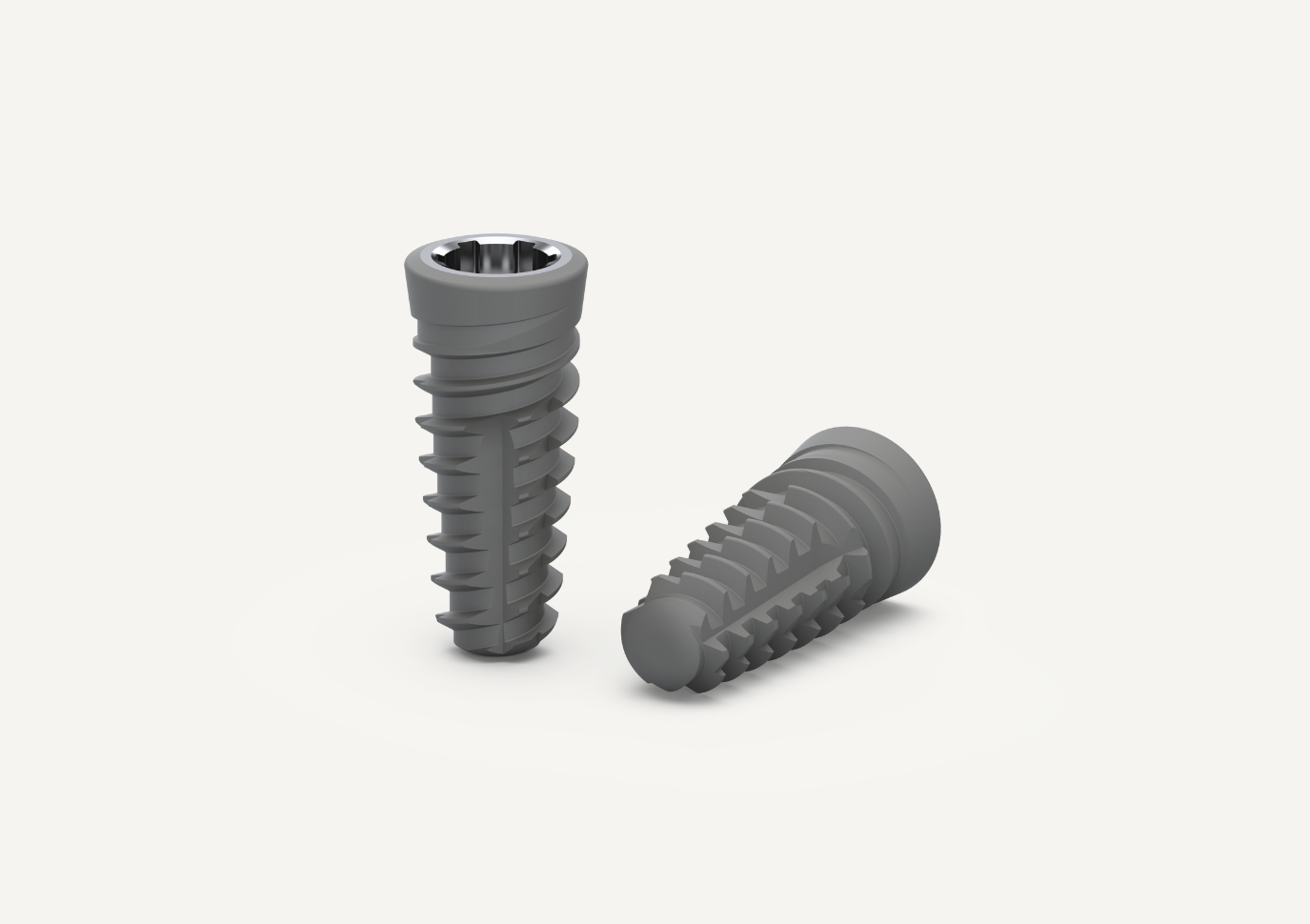
.png?width=944&height=944&name=Edge%20(1).png)
